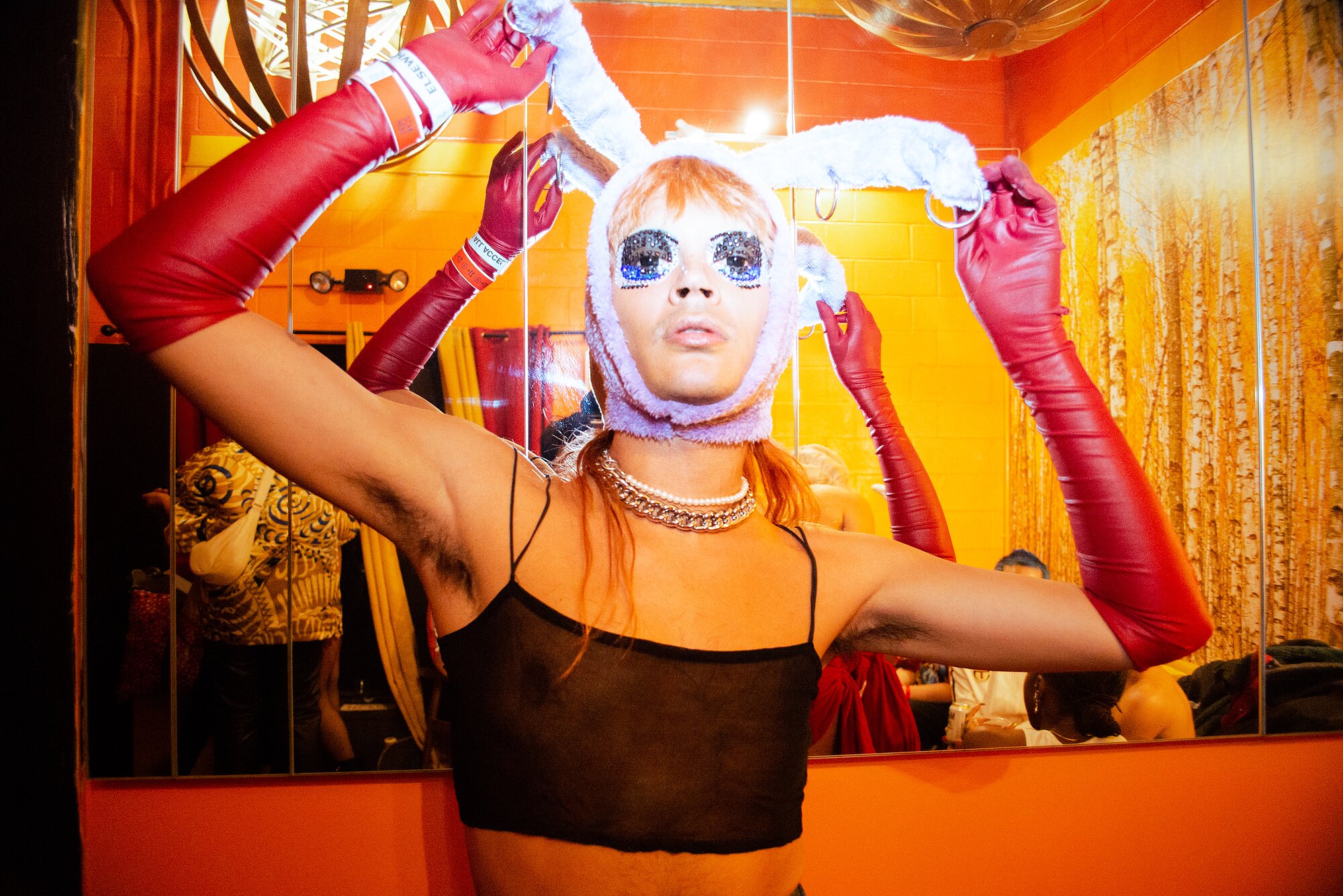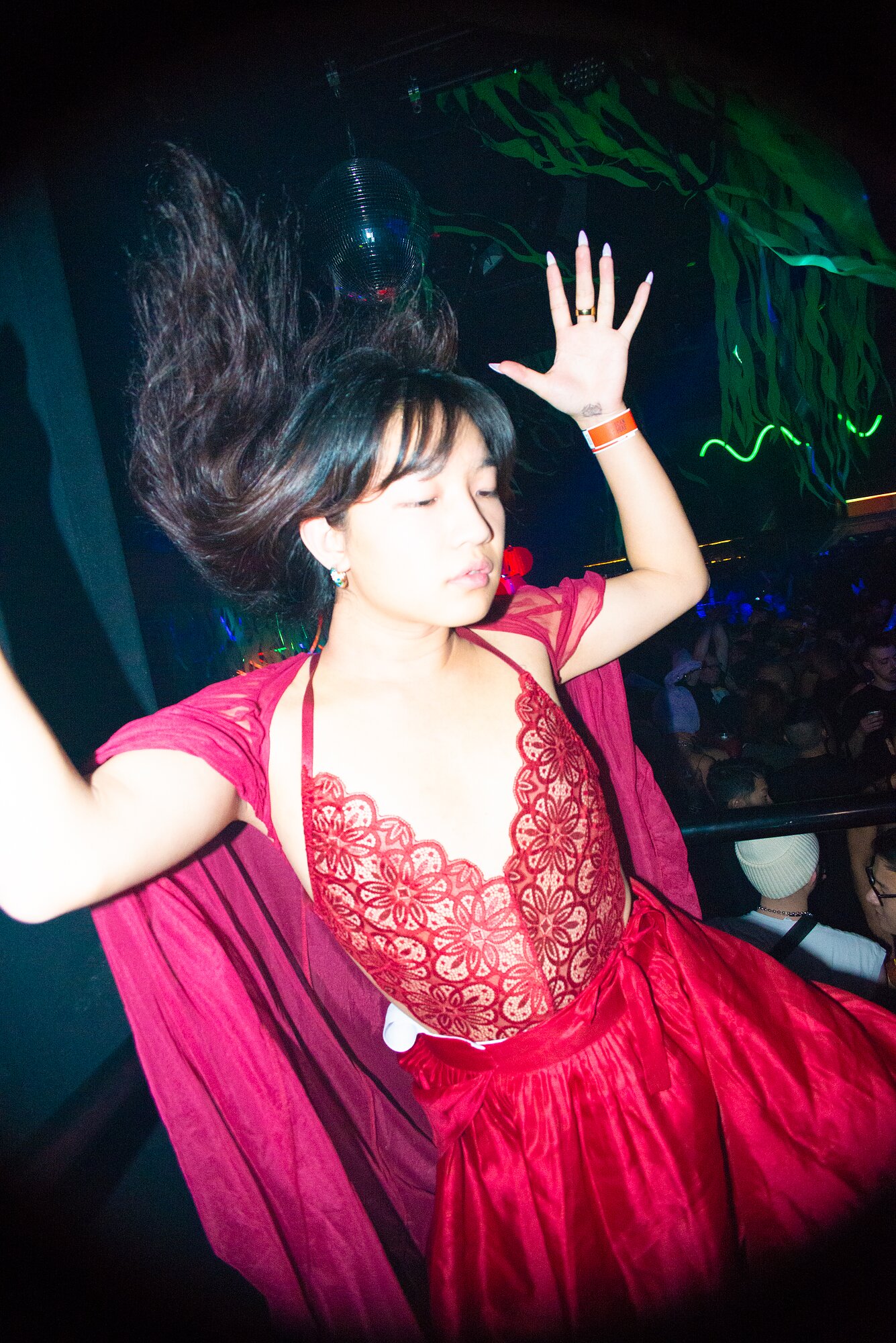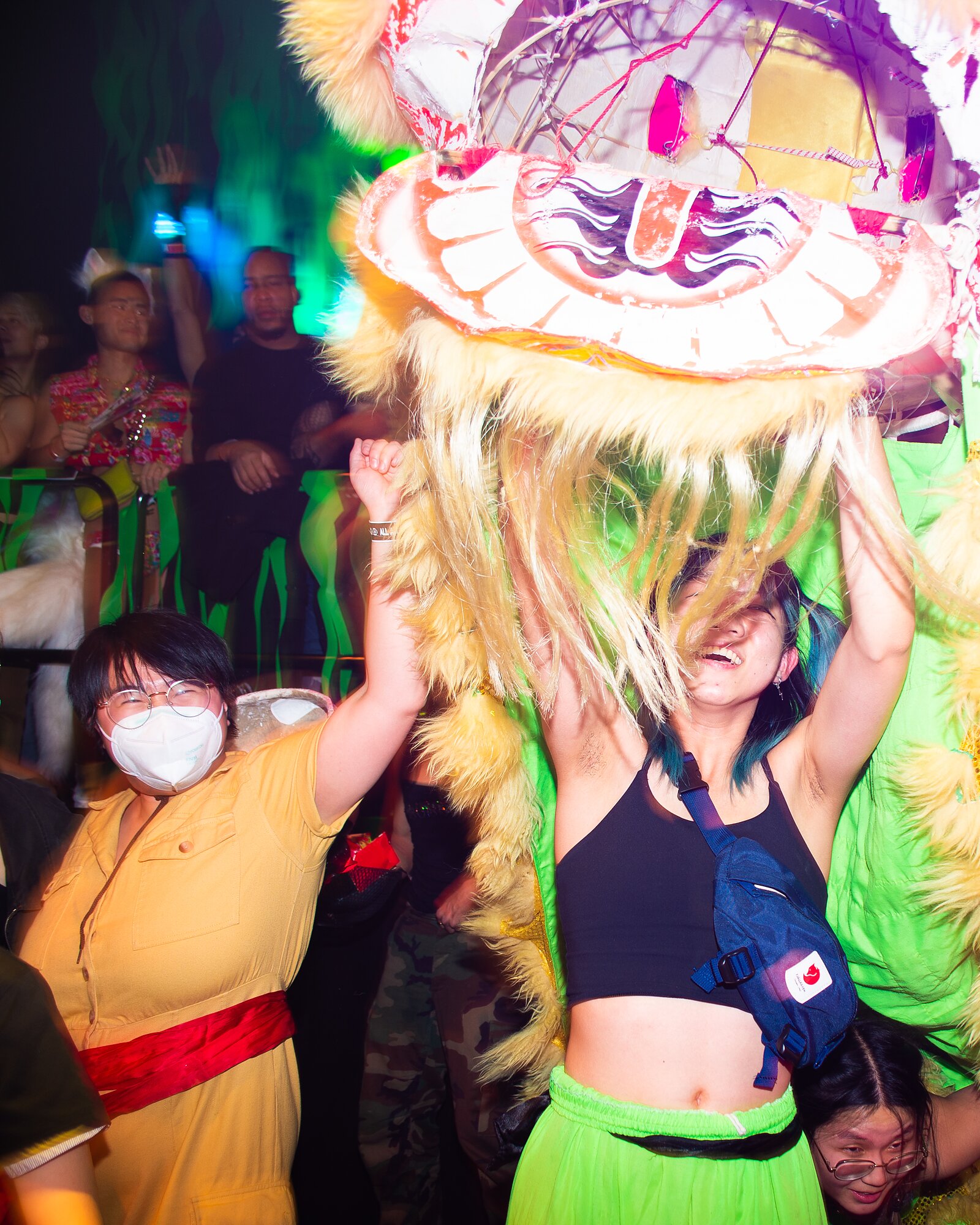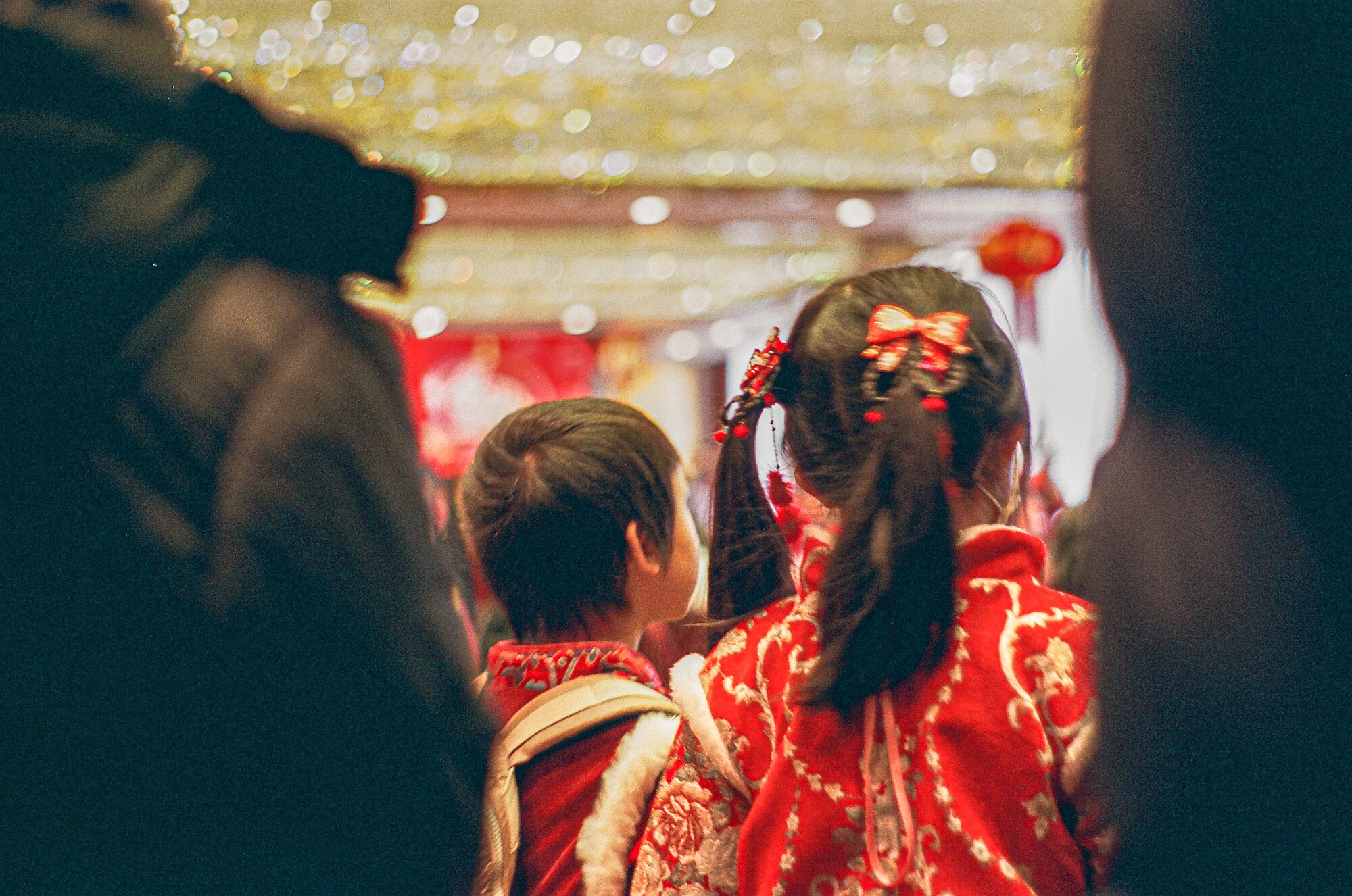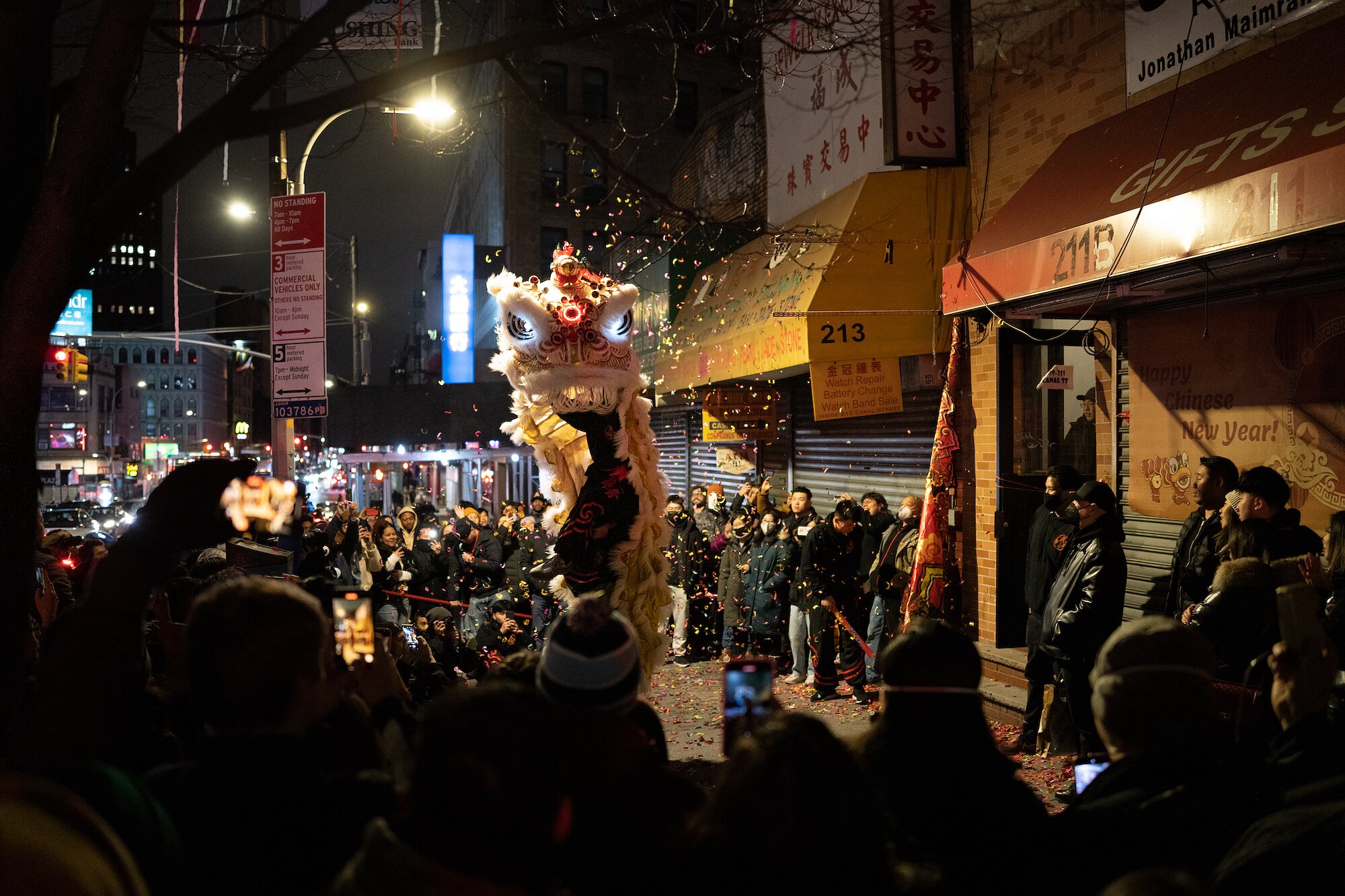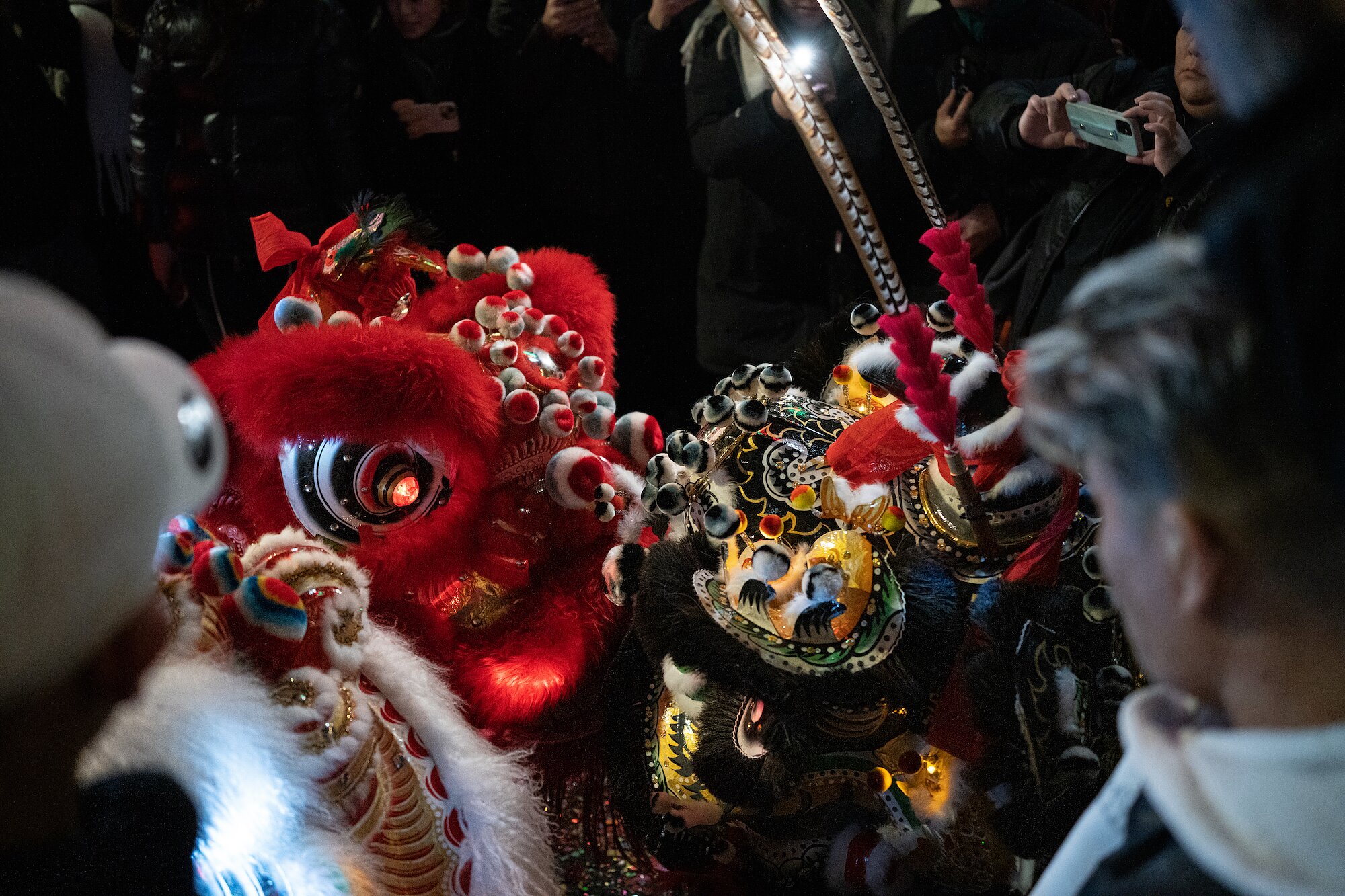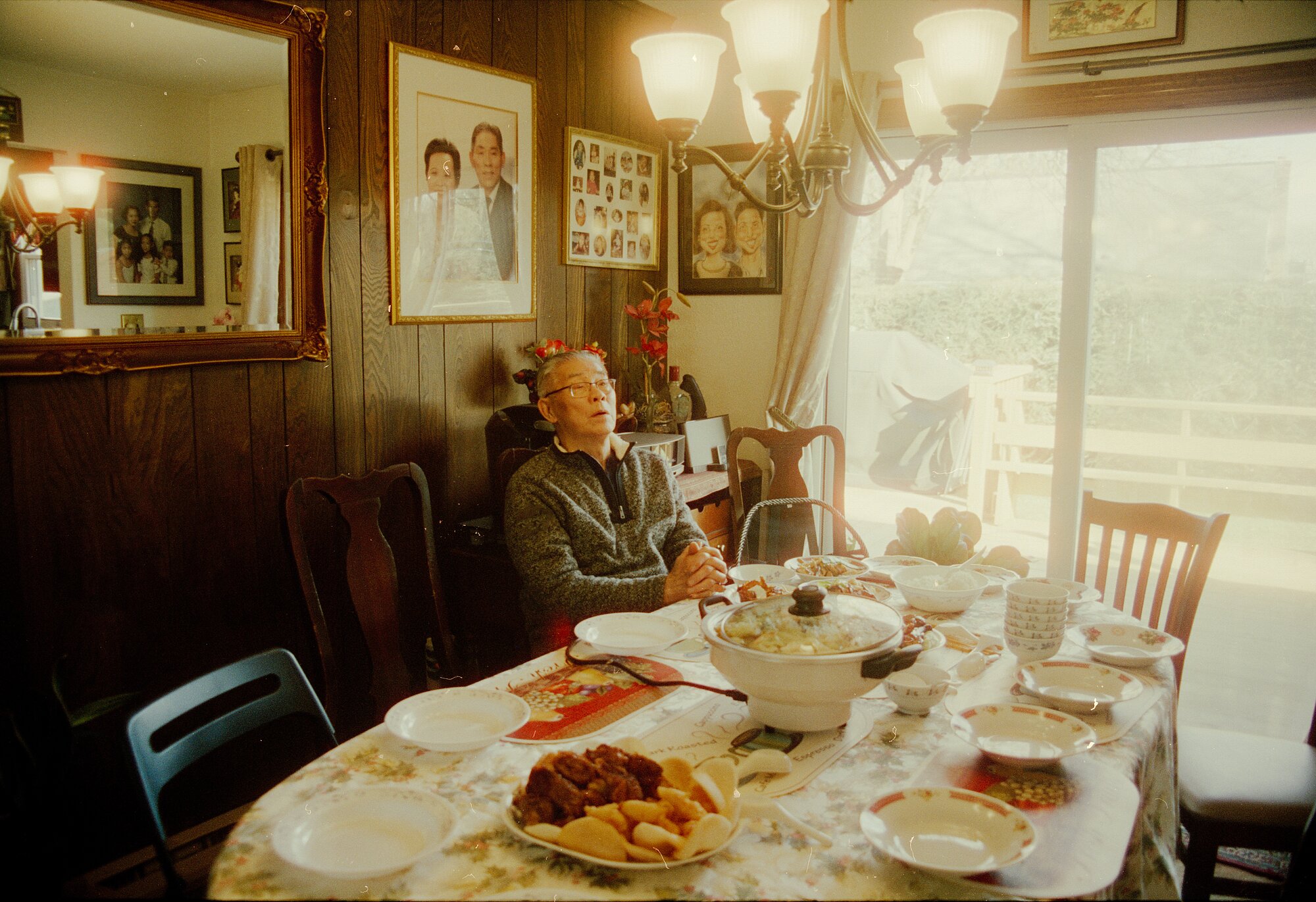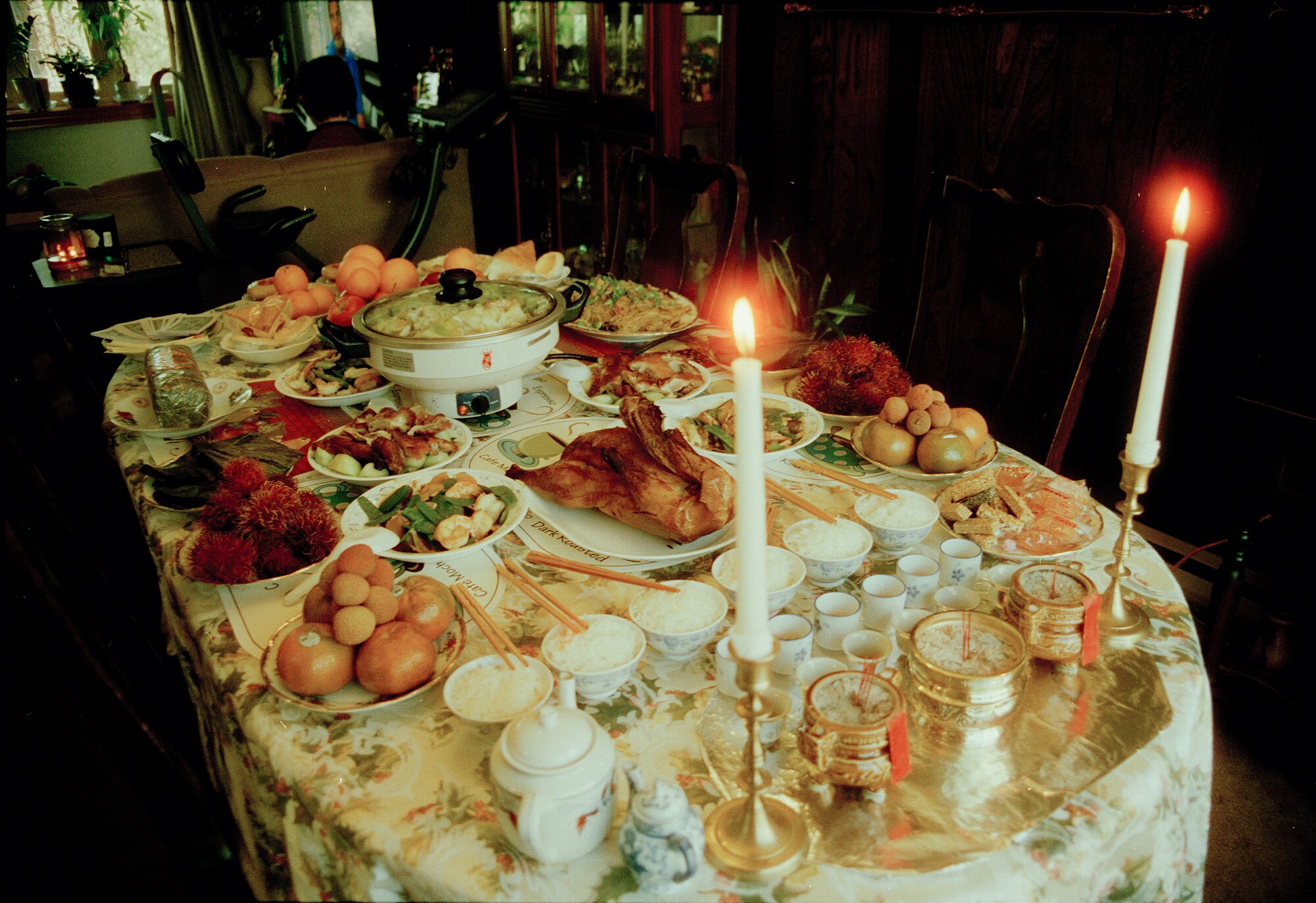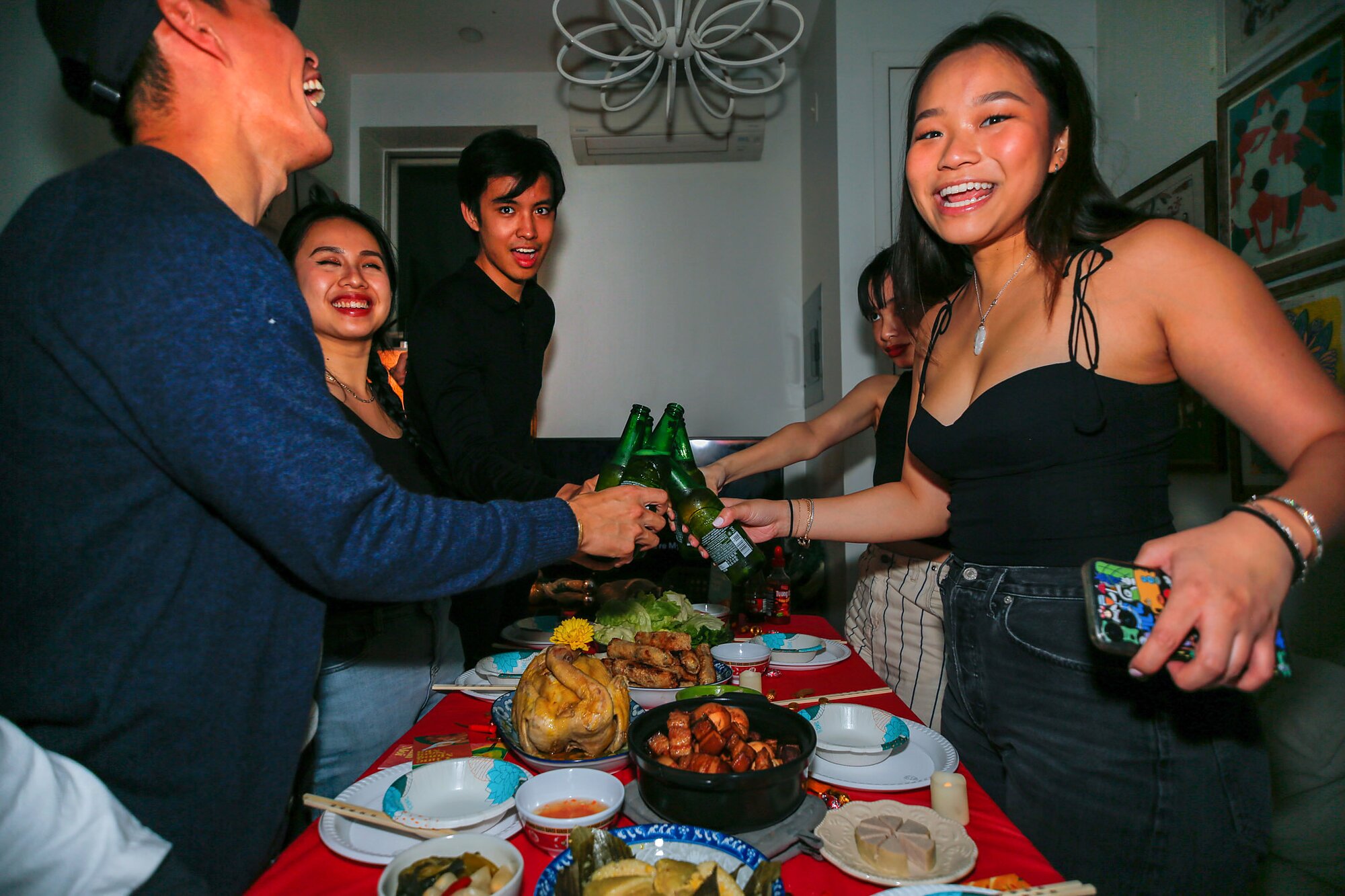How 5 NYC Photographers Celebrated Lunar New Year 2023
(„• ֊ •„) ♡
━O━O━━━━━━━━━━━━━━━━━━━━━━━━━━━━━━━━━━━━━━━━━━━━━━━━━━━━━━━━━━━━━━━━━━━━━━━━━━━━━
My new year intention for the Year of the Water Rabbit was: “get money, slut!” so it is very fitting that I spent the new year working. May luck and abundance follow me through the rest of the year. Working as a photographer, even on a holiday, isn’t that bad. I was drawn to documenting Bubble_T, the queer AAPI dance party collective, like a moth to a flame: it’s the perfect blend of fashion, horniness, good lighting, sick beats, chismis (“gossip” in Tagalog), and social stratification that makes it impossible to take a bad photo.
Before I left for the club, my mom said, “be careful.” My parents always tell me to be careful: “Ingat.” It’s how we close off every conversation. When I was a girl, I thought my safety was my responsibility. I was taught that you could erase your otherness by never speaking out and always playing by the rules. I was taught that assimilating would guarantee my safety.
The problem is, my Mars is in Aries so I hate rules; no matter how well you play by them, safety is never guaranteed. Not as a trans person. Not as an Asian person. It isn’t guaranteed in the club, or the dancehall, at our schools, our subway stations, or our workplaces. We aren’t safe when we use the women’s bathrooms, we aren’t safe when we use the men’s. We can’t erase our otherness away.
I take photos of my queer Asian American community because I need to immortalize when I feel triumphant as a trans Asian person. We rarely see ourselves as sexy and beautiful. We are rarely encouraged to have fun! Why are we so rarely the stars?
Sometimes, when violence strikes, I am tempted to hide. But I can’t let fear win. Not again and again and again. I am determined to find new ways to ensure my community’s safety. I believe I deserve to live in a world where, on the Aquarius New Moon, eve of the Year of the Water Rabbit, I can feel safe enough to be thotty with my friends and dance all night with reckless abandon.
Marion Aguas (he/they) is a photographer and filmmaker based in Queens, New York. They cut their teeth in the streets, documenting and organizing with the Filipino National Democratic movement and the W.O.W. Project, a women, queer, and trans-led community initiative that uses art and activism to protect NYC Chinatown’s culture. In 2017, they started a portrait project of queer Asian Americans, which inevitably led them into the QTBIPOC nightlife and drag scenes in New York. Informed by their own experience as a trans person of color, Marion uses their camera to immortalize queer joy as a form of liberation. They have shown work at The Wing Luke Museum, Red Hook Labs, The San Diego Filipino Film Festival, and MoodRing.
(„• ֊ •„) ♡
━O━O━━━━━━━━━━━━━━━━━━━━━━━━━━━━━━━━━━━━━━━━━━━━━━━━━━━━━━━━━━━━━━━━━━━━━━━━━━━━━
I celebrated this Lunar New Year with the community in Brooklyn’s Chinatown, which spans from Sunset Park to Bensonhurst to Sheepshead Bay. These neighborhoods are home to some of the largest populations of Chinese residents in NYC. A majority of residents are families of immigrants from Hong Kong and Guangdong (where my parents immigrated from).
Families, including mine, gather for dinner on Lunar New Year’s Eve where you devour long noodles for long lives, eat steamed fish to sharpen your brains, and drink Merlot because your brother picked up wine tasting in college. Celebrations are festive and a beautiful amalgamation of pieces of the Asian diaspora – across continents and between generations.
Lunar New Year starts with a two-hour wait (a wait your parents did while you slept in) at the local dim sum spot where dragon dances happen on the hour. You observe as red envelopes fly into your waiter’s hands. You point eagerly for your next round of food. You watch the kids cry and then laugh as dragons attempt to swallow them whole.
You walk down 8th avenue with a full stomach, after having walked 86th st. the night before – both streets a sea of red and gold: the grocery bags, the clothing, the food and the decor becoming indistinguishable from one another. You once more admire the flamboyance and colorful nature of the markets, the lanterns, the string art, the party snaps, and all that traverses these neighborhoods. In these Chinese communities across South Brooklyn, there exists an unapologetic nature of public expression born from brave lives and an unrelenting sense of community.
Alec Dai is based in Brooklyn, NY. He focuses on using photography to explore the intersection of queer and Asian-American identities. Leveraging his experience as a queer Chinese American, he has travelled from Butte, Montana, where the first Chinese railroad workers migrated, to Hartford, Connecticut, where Ocean Vuong’s novel “On Earth We’re Briefly Gorgeous” takes place, seeking to visualize and weave together remnants of his queer and Asian identity in this country. The notion of migration in many Asian American lives and the transformations many queer folk go through continues to be topical in his work today.
(„• ֊ •„) ♡
━O━O━━━━━━━━━━━━━━━━━━━━━━━━━━━━━━━━━━━━━━━━━━━━━━━━━━━━━━━━━━━━━━━━━━━━━━━━━━━━━
After I was outed, going home became sporadic. Family gatherings turned into sites where my sexuality was frequently contested. My parents had many expectations surrounding how a Chinese daughter should be — and queer was far outside their ideals. No longer connected to family who would otherwise guide me through celebrations and customs, I began to recontextualize these traditions for myself.
As a queer Chinese person, Lunar New Year in Chinatown possesses a special kind of magic. On the eve of the Year of the Water Rabbit, my girlfriend and I sprinted down confetti-lined streets, hand-in-hand, towards the echo of drums. Lion dance troupes paraded up and down Mott Street and when we reached the intersection at Mosco, our friends ambushed us with confetti cannons and goodie bags in tow. We greeted community members we knew and as we counted down the New Year, I felt grateful for this queer little moment we carved together.
Cal Hsiao is a documentary photographer born and raised in Flushing, NY. Their photo and video work has been featured on Axios on HBO, and local nonprofits (ThinkChinatown, Apex for Youth). They are passionate about racial justice, community centered healing, and good food.
(„• ֊ •„) ♡
━O━O━━━━━━━━━━━━━━━━━━━━━━━━━━━━━━━━━━━━━━━━━━━━━━━━━━━━━━━━━━━━━━━━━━━━━━━━━━━━━
While my family doesn’t talk much and I am not very close with them, it felt very special to participate in traditions they have continued since escaping the Khmer Rouge and moving to the United States in the late 1970s. This year was the first time I spent Lunar New Year with my extended family in Connecticut. Growing up between Massachusetts and the Bay Area, I never really got to spend much time with them until recently, when I moved to New York for college. My cousin invited me over to celebrate at my uncle’s house.
My dad’s side of the family is Cambodian but has Vietnamese and Chinese roots, so although the Cambodian New Year is in April, they choose to celebrate it now. My grandmother was Buddhist, and so everyone came early in the morning to light incense with candles to pray to and honor our ancestors, carrying on the tradition that she had started before she passed. Following this, the children, including myself, burned paper money outside as an offering to our ancestors. The rest of the day, we ate lots of food and watched television.
This was all very new to me. I didn’t really celebrate Lunar New Year growing up because my parents did not know how to celebrate it — my mom lived with an American foster family and my dad spent time away at a boarding school on scholarship. As refugees who came to America when they were very young, they were isolated from their Vietnamese and Cambodian cultures. My only memory were the red envelopes I periodically received in the mail from family members.
Elinor Kry is a Viet-Cambodian American photographer. She was born in Boston and grew up in the Bay Area. After moving to LA to work and then NYC to attend NYU, she became aware of questions around identity. She spent most of her life away from family and experiences with her ethnic heritage; coming to NYC has created opportunities for her to interact with Asian American culture in a much more deeply ingrained way — via relationships, intellectual endeavors, and creative pursuits. Photography has been a means through which she navigates an alluring yet often confusing world, one in which she seeks to belong and yet also needs to create distance from in order to have some sort of objectivity.
(„• ֊ •„) ♡
━O━O━━━━━━━━━━━━━━━━━━━━━━━━━━━━━━━━━━━━━━━━━━━━━━━━━━━━━━━━━━━━━━━━━━━━━━━━━━━━━
Lì xì (lucky money) is a quintessential part of Vietnamese Lunar New Year, or Tết. Traditionally, these envelopes contain money and represent the wish of good fortune. But beyond the physical offering, the tradition is also a precious exchange of compassion – something we can all aim to give each other more of.
The idea behind my photo series, “Mâm Cơm Ngày Tết,” which refers to the spread of food eaten around Lunar New Year, is to capture the feeling of togetherness that comes from being at a shared meal during the holiday. For many, this occasion is the only time of the year they are able to spend time with their loved ones.
A Tết meal requires attention, love, and care to put together before serving so that everyone can convene at the table, savoring the warm embrace of familiar foods, reflecting on the passing year, and being in good company. The dinner table is where we put aside our old troubles and bring forward new beginnings. Like an omen for the new year, we give each other the best we have to offer. This is the intention behind the lì xì envelopes present throughout these photos and the correlating food offerings they represent.
Anh Nguyen is a photographer and journalist from Sài Gòn, currently based in Brooklyn. She is passionate about people-watching, playlist-making, and plant-keeping.
